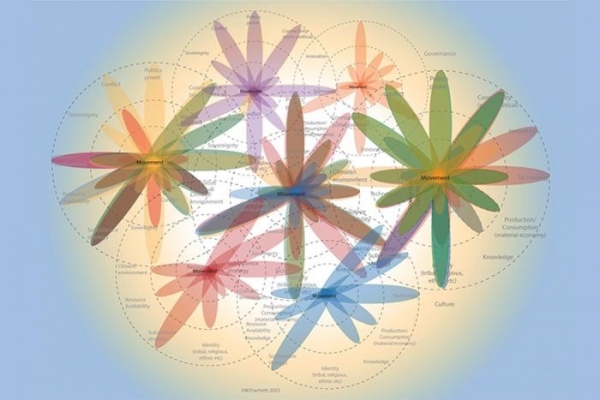Spurred by the current climate crisis, there has been a heightened attention within the scientific community in recent years to how past climate variation contributed to historic human migration and other behaviors.
Now, an international group of scientists — including archaeologists, historians, climate scientists, paleo-scientists, a volcanologist and others — are calling for a strengthened commitment to transdisciplinary collaboration to study past and present human-environmental interactions, which they say will advance our understanding of these complex, entangled histories. Their recommendations were published Nov. 22 in Science Advances.
In doing so, the group has introduced a new tool, the “dahliagram,” to enable researchers to analyze and visualize a wide array of quantitative and qualitative knowledge from diverse disciplinary sources and epistemological backgrounds.
Read more at: Washington University in St. Louis
Multiple overlapping dahliagrams (Photo Credit: Michael Frachetti/Washington University)


